29 July 2021
Small is beautiful!
I recently come to think "Small is beautiful" meaning you do not have to seek bigger size. Why not just stay in a small scale, which may be more comfortable?
I live in Tokyo, where so many tall modern buildings stand. But I am not attracted to such scenery any more.
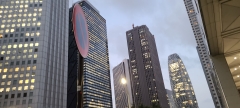
Now I am attracted to traditional district of Kyoto, where wooden low height houses line up.
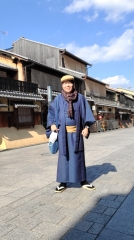
Tall modern buildings consume so much electricity that requires mega power plants causing mass emission of carbon dioxide or radioactives.
Since so many people gather in small areas, people become more susceptible to infectious disease like the current pandemic.
Why do we seek higher, bigger, and more gorgeous things? I am fed up with these things.
Not only the tall modern buildings but ongoing Tokyo Olympics are good example. Why do athletes want to compete with others for the gold medals? To become a hero, or get a prestigious status?
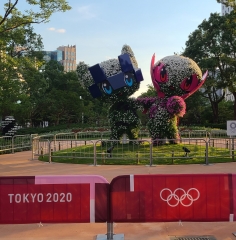
What is the significance of competing in Olympics? Is it worth risking their bodies? No way. Just a sport.
Major corporations utilize them as tools to boost their sales. Olympics are commercial shows.
This time due to the pandemic, no spectators are at the competition, meaning mass-gathering is a bad way for public health. Instead TV broadcasting worked.
Why do we need to watch such big events?
I would rather like to join a small banquet with ten or less people to be entertained by Geishas. So I can get much more closer to real entertainers than televised figures.
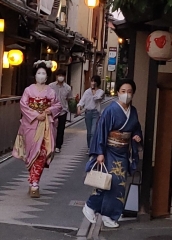
What should be the goal for humanity? I do not think tall modern buildings and Olympic athletes represents the answer.
31 December 2020
First Episode of "Little house on the Prairie" Model life in Post-COVID-19 era?
I just happened to watch the old time TV show on internet. The TV drama-series "Little House on the Prairie" was first aired in 1970's US and later dubbed version of it was aired in Japan as well.
I liked the show but it seemed the stories in the show were mostly fiction or modified for the dramatic effect.
But the very first episode seems not since I read the original novel written by Laura Ingalls Wilder and compared to the episode.
It started with Ingalls family departing from the woods and found the place to settle down. They could have owned the land by cultivating the fields in accordance with Homestead Act of late 19th century, a pioneer period.
But they had to live in a very wild environment and had to deal with native people and wild animals. They had to dig the ground to make a well for water. They had to cut trees to make logs to build the house.
In a very small house, at first there was no floor boards and the roof was hood taken out from the horse carriage. What they had was only basic needs.
Our civilization is now on the edge due to the deadly flu and global climate change. It was because we try to have too much destroying the natural ecosystem. The modern system we rely on too much was found to be very vulnerable to such crisis.
It is time to rethink our way of life. "Little House on the Prairie" may be a good model of how one lives one's life without luxuries modern people have gotten used to.
The answer may be somewhat of that little wooden house or Native People, whom the family called "Indians" in the show.
19 November 2020
COVID-19 creates the very 21st century lifestyle and systems
New vaccines were recently invented for the flu. I guess things might be going back to pre-COVID-19 period.
But there should be three major lifestyle and system changes, which may remain in our society even after the pandemic is gone.
1. Basic Income; Wordwide lockdown measures let the world governments compensate their citizens for loss of income because they couldn't go to work or open restaurants. People and governments realized everyone needs basic income to prepare for such crisis, which may come unexpectedly in the future.
2. Online education and work; People realized there is no needs to spend extra-time or fees for commute to do the same things as we can easily do on internet.
3. Less crowded space to stay; People realized the more crowded place one is in, the higher risk of infection of the flu. Let’s always make a social distance everywhere, every time. Too many people gather in a small space is not desired. No more events like a rock concert in a big stadium. For businesses holding of big events to invite so many people is considered a great risk. That may have to be cancelled due to another pandemic resulting in a huge loss.
Designs of streets and buildings have to contain such notion. So in post-COVID-19 era, wider streets and corridors, bigger seats in less packed rooms and auditoriums. Conventional city layout should be drastically altered.
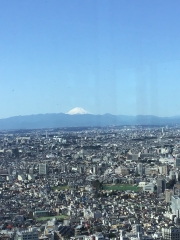
In that sense, rural lifestyle transcends urban one. More people will live in countryside and be able to work from home online not worrying about money because certain amount of money is paid or you can produce food on your farms so you do not die by losing jobs.
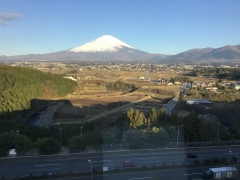
That is the very 21st century lifestyle.
29 September 2020
Is the world coming to the end or changing its course for the better?
What I am writing might include inappropriate things.
Recently, the world is in turmoil. High temperature caused big forest fires in Brazil, California, Australia and other parts of the world, much more frequently ever before.
The pandemic by novel corona virus shut down or suppressed many of human activities. Over 1 million people died since the outbreak. No good medicine is discovered yet.
How are we going to deal with such matters?
Are we just being frightened?
Or maybe we’ve got a chance to rethink our way of life. This pandemic and big climate change forcibly changed our lifestyle.
California decided that the state would allow only electric cars in new car sale market from 2035.
More people work at home using internet. No time loss for commute. Seems like pre-industrial era, where most of people work at home or near their residence as farmers or craftsman. Internet enabled us to do similar things to what we do in office or school. Why not have we done that even before the pandemic?
Due to the high unemployment rate and unstable job market, people lost their jobs or get less income. To mitigate this situation, some economists propose “Basic Income” measure in which the government provide minimum level or less amount of income for living to all the people of the nation monthly.
In Japan, this year 100,000 yen (900 US $ worth) money was provided to all the Japanese nationals once a few months after the pandemic broke out.
The presented measure is to do it monthly all time around but abolish unemployment benefits, social welfare and retirement pension. But no homeless people on the street.
Such things would never have happened unless the pandemic broke out.
Because we are forced to stay home and work from home, we have to think of alternative way of living. Pandemic forced us to realize how vulnerable we are, and how fragile our world is.
As for the eco-crisis we’ve already faced a long before the pandemic, it has become obvious that people do not need to drive, ride or fly a long distance just for the business or study. Energy for transportation can be drastically eliminated.
Global warming might cause another pandemic by melting of permanent ice in Siberia or North Pole. This pandemic might become prep-school for another greater ones.
We all have to be serious about the world ecology crisis. We must act now and keep doing it.
Even after the vaccine or cure medicine is discovered, we would never go back to the life we had in pre-pandemic era.
Good lesson and good chance!
19:18 Posted in Australia, Ecology, Health, Society | Permalink | Comments (0) | Tags: pandemic, climate change, global warming





